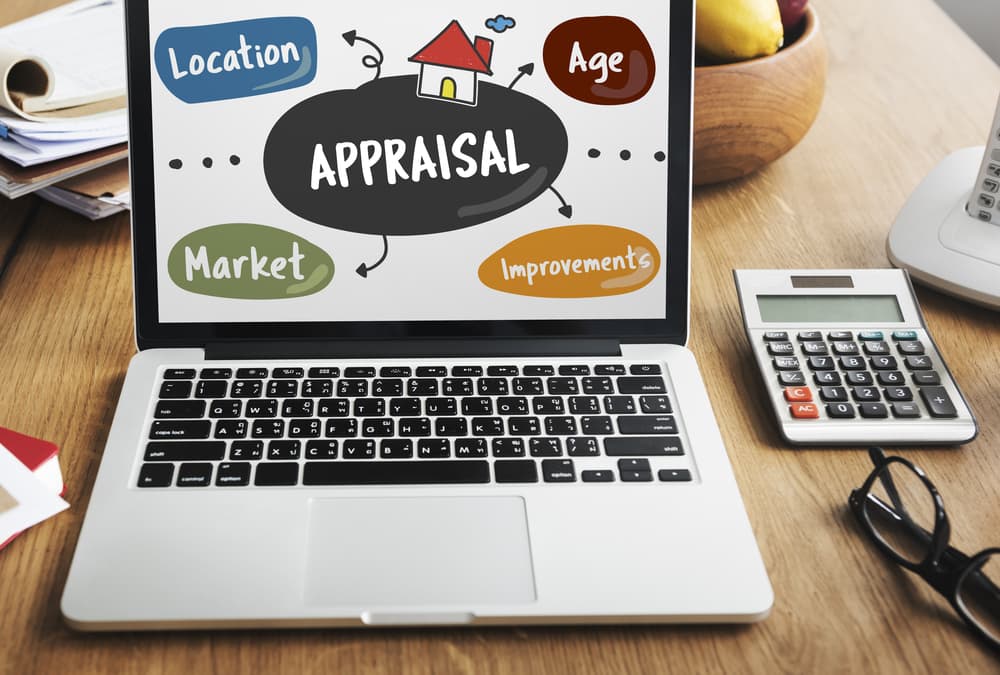If you are curious about raw land investing, there are a few things you should learn before getting started. Most land investments start with a professional appraisal. The purpose of a land appraisal is to determine the value of the raw land and identify its best potential use.
There are numerous benefits associated with buying and developing raw land, but only if you know how to navigate this investment type. Keep reading to learn how to get land accurately appraised and why this information is crucial to the success of your investment.
What is a Land Appraisal?
A land appraisal is the process of professionally surveying a plot of land to determine its market value. This process is used to identify the best potential use for the land and guide the future development process. Several factors are considered when conducting a land appraisal, such as the location and size of the land.
Land appraisals are typically required to finance the purchase of raw land. Lenders want to know that the purchase price is fair, similar to a traditional real estate transaction. However, even if your lender does not require an appraisal, it is still recommended to have one conducted.
How Much Does a Land Appraisal Cost?
A land appraisal costs between $1,000 and $4,000 depending on the zoning, location, and size. Residential lots have a lower appraisal cost because of their simplicity, and the appraisal may only take a week. Commercial land appraisals can be more costly and take longer to complete, particularly if the lot is large.
Another factor that can affect a land appraisal price is the need for environmental studies. If you are buying land with natural resources present, it will take longer for an appraiser to determine the value of the land. If testing and additional environmental studies are needed, it will result in a higher appraisal price.
[ Thinking about investing in real estate? Register to attend a FREE online real estate class and learn how to get started investing in real estate. ]

Benefits of Conducting a Land Appraisal
Ask yourself, would you buy a house without an appraisal? The answer is probably not. An appraisal is one of the most effective ways to determine whether you are paying a fair price for a property or land. Here are just some of the reasons an accurate land appraisal can be beneficial:
-
Secure Financing: Most lenders will require an appraisal before approving your application for a loan. This is to protect their bottom line and ensure the purchase price is accurate. You will need to complete the appraisal to get your financing approved.
-
Better Decision Making: A land appraisal will often suggest the best use for the land, which can inform your overall decision on whether the property is a sound investment.
-
Accurate Insurance: Insurance providers will typically require an appraisal to confirm the value of the policy. You will need a land appraisal to accurately insure your investment.
-
Simplify Estate Planning: Even if you already own a piece of land, it can be beneficial to have it appraised for your own records. Establishing the value can help as you draft an Estate Plan and determine the future of your investment.
-
Estimate Ownership Costs: An appraisal can give you a better idea of the costs of ownership. For example, an appraisal will identify the estimated property taxes. This can help as you evaluate the costs and benefits associated with the purchase.
How to Appraise Land
A land appraisal is a highly involved process, in some ways more so than a property appraisal. This is because more components must be surveyed to determine the best use for the land. By getting an accurate land appraisal, owners and investors alike can purchase land with confidence.
There is no one set process for appraising land because each plot is unique in features and geography. That being said, there are some common factors that appraisers will look for. Here are just some of the factors considered within a land appraisal.
Highest and Best Use
The best use of the land is arguably the most important factor being considered during a land appraisal. This will tell you what the property should be used for to maximize its overall potential. An appraiser will consider four main factors to determine the best use: physically possible, financially feasible, legally allowed, and maximally productive.
Accessibility
The land needs to be accessible by roads if it is going to be developed in any way. A land appraisal will consider how much of the land can be reached by road; an area typically referred to as frontage. In most cases, the more frontage a piece of land has, the higher its value will be. Frontage can also impact what the property can and cannot be zoned for.
Competitive Land Rates
Similar to real estate comps, a land appraisal will take recently sold parcels of land into consideration. Appraisers will look for areas of similar size and type that have sold within the last month or two. This can provide a starting point for the appraisal.
Size and Shape of the Property
The size and shape of a piece of land have a significant impact on what it can be used for and, consequently, its overall value. A land appraisal will first consider the size and shape when determining the best use. For example, an irregularly shaped lot may not be well suited for a single-family home if there is no space for a yard.
Utilities
The availability of utilities will have a significant impact on the overall value of the land. If there are no water, sewer, power, or internet lines, it can dramatically drive up the development costs. Putting in utility lines can also take weeks, if not months, which can extend the length of the project. For these reasons, land with existing utility access often sells for more.
Improvements Made to the Property
If there are any existing amenities or improvements made to the land, it could impact the appraised value. For example, if the property already has hiking trails or water access, it may be more desirable for investors. These features can increase the overall value, as long as they do not prevent the land from being developed.
Zoning Restrictions
The current zoning status of the land will directly determine how it can be developed. A few common zoning types include residential, commercial, industrial, or agricultural. The zoning type will impact what type of structures can be built. While most properties can be rezoned, this is another cost for buyers to consider.
Wildlife and Environmental Factors
Numerous environmental tests can be done during a land appraisal. Most commonly, appraisers will test the soil for nutrients and contaminants. Factors such as lead, asbestos, and radon can decrease the overall value of the land.
The presence of wildlife, particularly protected species, can also affect the appraisal value. If there is wildlife present, it impacts whether the land can be developed. In cases where the land cannot be developed, the appraisal value will often be low.
Land Demand
Demand for raw land can dramatically increase the value during an appraisal. This is most commonly seen in developing commercial areas, where there may be bidding wars for specific parcels of land. On the other hand, areas that have not been developed may experience low demand for raw land. This will result in lower appraisal values overall.

How to Get Land Appraised
The process to get land appraised is relatively simple. Start by reaching out to a real estate agent or brokerage in your area, particularly if you are interested in buying land. They will then refer you to a licensed appraiser who will be able to get started.
If you are interested in appraising a piece of land you already own, you can still start by contacting an agent or brokerage. You can also search online for qualified appraisers in your area. Find someone with experience in the type of land you own, such as an agricultural specialist appraising farmland.
Summary
A land appraisal is a valuable step when purchasing any type of raw land. Not only can this process reveal the best use of the land, but it can also reveal several factors about the development process. This can guide your decisions as you consider the investment and development potential, and boost your bottom line in the long run.
Ready to start taking advantage of the current opportunities in the real estate market?
Click the banner below to take a 90-minute online training class and get started learning how to invest in today’s real estate market!


